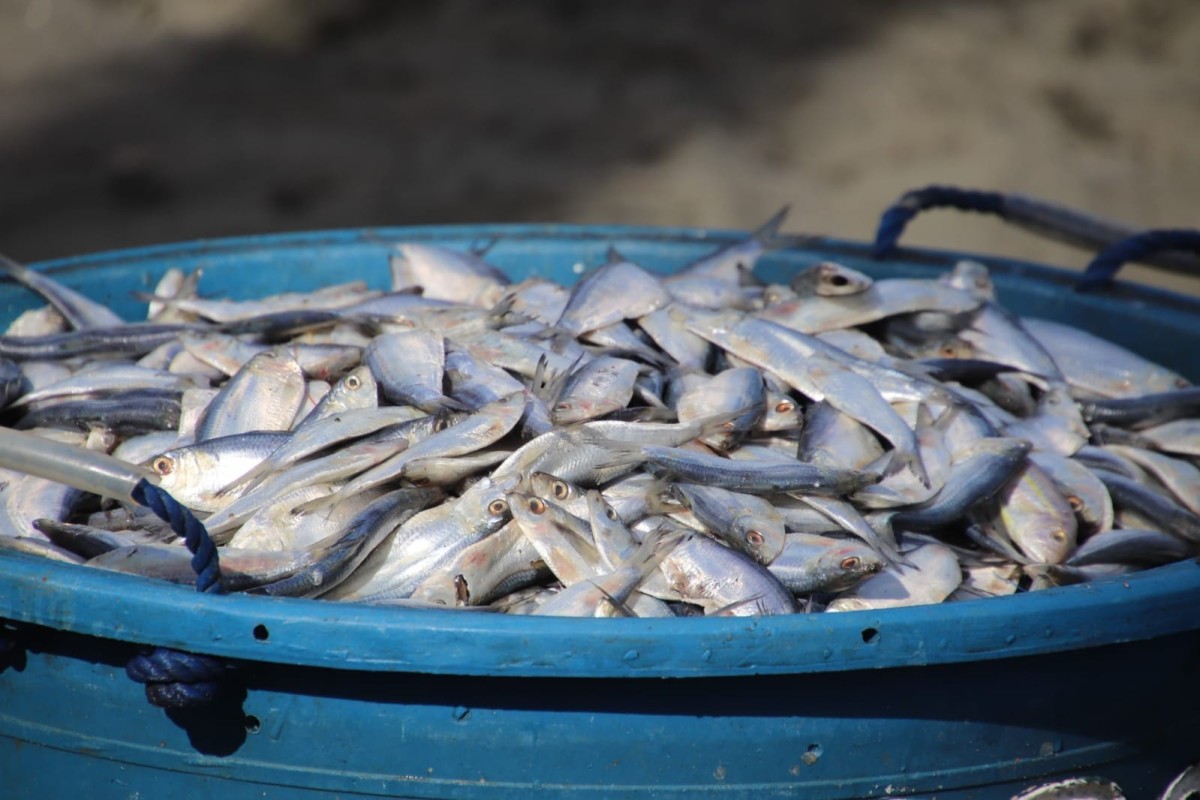ROXAS CITY, Capiz (PIA) -- The Capiz State University has been pilot testing and conducting a market study since Feb. 14 on its Biomass-Fired Fish Dryer in the fish-drying community of Barangay Dumolog in the city.
The 10-day trial aims to calibrate and adjust the technology that uses rice hulls to produce the heat needed for fish drying.
Dumolog and its adjacent village of Cogon have about 226 local fish dryers processing over 30,000 metric tons of fish annually thru the traditional sun-drying method.

“This technology will complement the existing practice of the fish dryers as this will provide an improved local drying technology for fish which is acceptable to its users as an alternative method when sun-drying is not possible,” said CapSU Burias Biomass–Fired Fish Dryer project leader Engr. Monalyn Oloroso.
She added that the initial tests were able to process 80 to 100 kilograms of herring (tabagak) and anchovies (dilis) into dried fish in 6 to 7 hours, depending on the fish species lodged into the machine.
In the pilot testing, the above tests were verified and adjustments in the drying conditions are being made to meet quality demands for tabagak, she revealed.
Positive drying was observed for dilis (whole), tabios, boneless dilis, and daing.
The dryer can load two fish tubs at a time but can be loaded up to four fish tubs if maximized.
The machine was temporarily established in the vacant lot of fish dryer Mario Agase.
“We need this especially since Climate Change has made the unpredictability of the weather more complicated because rains and even typhoons occur during summer time,” said Dumolog Fisherfolks Association secretary Yolly Jean Escaño.
Another city resident and dried fish consumer thanked the university for the project as he conveyed optimism on the process to be hygienic as contamination on the fish will be minimized, as well as will surely reduce the unpleasant odor in the area which may cause respiratory–related illnesses.

The university is the implementing agency of the project under the Technology Innovation for Commercialization (TECHNiCOM) program through the funding of the Department of Science and Technology – Technology Application and Promotion Institute to fast-track the transfer, utilization, and commercialization of research and development outputs.
The biomass fish dryer is expected to become part of the mechanical drying component of the proposed Roxas City DRYPACS Complex within the areas of Dumolog and Cogon.
DRYPACS is an acronym for Drying, Packaging and Complete Storage.
The dry run of the machine has the support of Roxas City Mayor Ronnie Dadivas and the DDFA officers and members.
“We are grateful that the pilot testing and market study of the project are in the city,” said Dadivas following the presentation of the project to him by CapSU Vice-President for research, development, and extension Dr. Efren L. Linan and CapSU Burias administrator Rodyard Madiclum earlier this month.
The city government will embark on a potential partnership with CapSU and DOST in view of the plans and programs of the local government unit to further develop its dried fish industry. (AGP/AAL/PIA Capiz)



